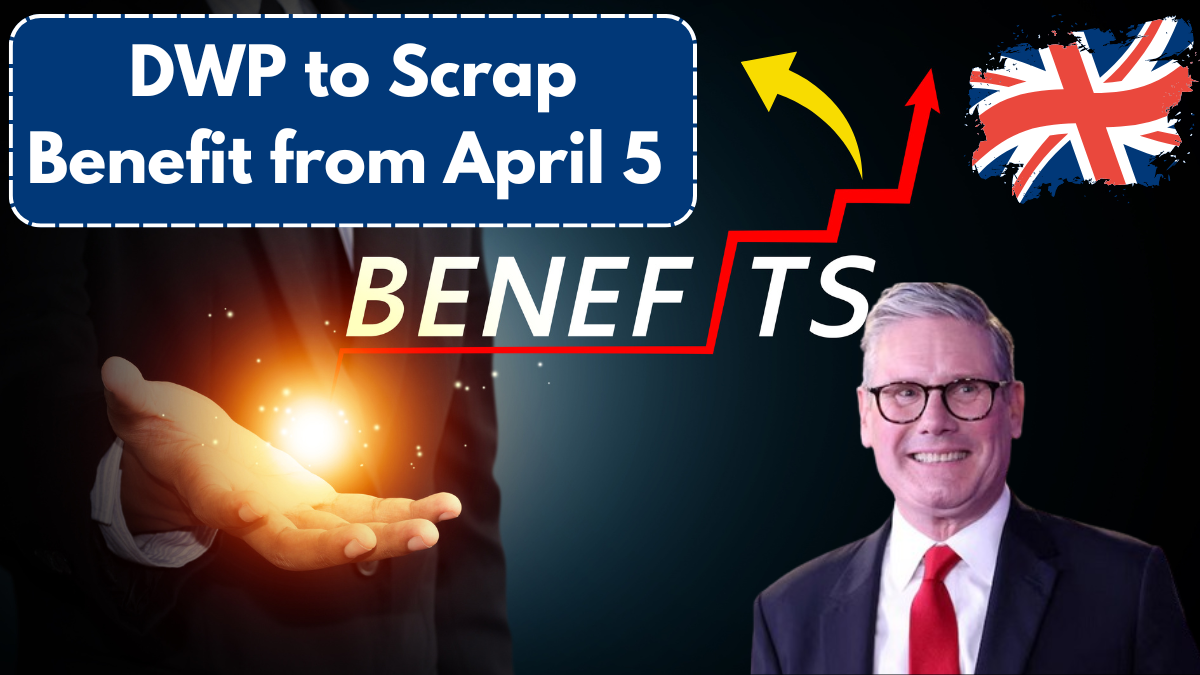The Department for Work and Pensions (DWP) is issuing crucial letters to individuals impacted by the discontinuation of HMRC tax credit payments. This change necessitates immediate action for some claimants to ensure a smooth transition to Universal Credit or alternative benefits.

Understanding the DWP’s Managed Migration Process
Why Are These Letters Being Sent?
The UK government is phasing out tax credits, and the DWP, in collaboration with HMRC, is notifying affected individuals about the upcoming termination. The letters, known as ‘Migration Notices,’ inform claimants of the impending change and guide them on how to maintain their financial support.
Key Timeline for Tax Credit Termination
As part of the managed migration initiative, the government has set a firm deadline:
- April 5, 2025 – This marks the official end of HMRC tax credit payments. Affected individuals must take action before this date to avoid financial disruption.
- Three-month deadline – Once a claimant receives the Migration Notice, they have three months to apply for Universal Credit to continue receiving benefits.
Who Is Affected by the Change?
Individuals Required to Take Action
Certain groups must respond to the Migration Notice to ensure continued support:
- Tax Credit Claimants – If you currently receive Working Tax Credit or Child Tax Credit, your claim will cease unless you transition to Universal Credit.
- State Pension Age Claimants – If you or your partner have reached State Pension age and still receive tax credits, you must apply for Universal Credit or an alternative benefit.
- Housing Benefit Recipients – If you rely on Housing Benefit, your entitlement to it will end the day before your Migration Notice deadline unless you apply for Universal Credit.
Who Can Choose an Alternative Benefit?
While Universal Credit is the primary replacement for tax credits, some individuals may qualify for Pension Credit instead. However, claimants opting for Pension Credit will not be eligible for Transitional Protection, which safeguards against financial loss when transitioning to Universal Credit.
Financial Support and Housing Assistance
Universal Credit Eligibility and Payment Structure
If you successfully claim Universal Credit, the first payment is typically issued five weeks after the application. During this waiting period, additional financial support is available.
| Financial Assistance | Details |
|---|---|
| Universal Credit Contingency Fund | A non-repayable grant to help cover urgent expenses. |
| Housing Cost Support | Can be included in your Universal Credit claim. |
| Extra Two-Week Housing Benefit | Paid automatically if you are receiving Housing Benefit before your tax credits end. |
Savings and Investment Considerations
If you have savings or investments exceeding £16,000, you can still claim Universal Credit for up to 12 assessment periods before reassessment is required.
How to Apply for Universal Credit
Step-by-Step Application Process
- Check Your Migration Notice – Review the letter’s details to understand your deadline and required actions.
- Gather Required Documents – Prepare identification, financial records, and proof of housing costs.
- Submit an Online Application – Visit the official Universal Credit website to complete your claim.
- Attend an Interview – Some claimants may need to attend an interview at a Jobcentre Plus office.
- Receive Confirmation and Payment Schedule – You will be notified of your claim status and payment details.
What Happens If You Don’t Apply?
Failing to apply for Universal Credit before the deadline means your tax credits will end, and you may lose financial assistance. If you require help, seek guidance from DWP representatives or a financial advisor.
Also Read: State Pensioners Advised to Unplug These 5 Devices Before April Energy Price Hike
Frequently Asked Questions (FAQs)
1. What if I don’t receive a Migration Notice?
Not all tax credit claimants will receive an immediate Migration Notice. However, if you still receive tax credits, stay informed about deadlines and proactively check your eligibility.
2. Can I switch to Universal Credit before receiving a Migration Notice?
Yes, you can voluntarily transition to Universal Credit before being notified. However, ensure you understand how it may affect your benefits, especially if you currently receive additional support.
3. Will my benefits amount change if I switch to Universal Credit?
In some cases, Universal Credit may provide different financial support compared to tax credits. Transitional Protection may apply to prevent immediate income loss, but long-term changes could still occur.
4. How do I apply for additional financial support while waiting for my first Universal Credit payment?
You can request an advance payment or apply for a Universal Credit Contingency Fund grant to cover essential expenses.
5. Where can I get help with my application?
You can visit your local Jobcentre Plus, contact the DWP helpline, or seek assistance from a financial advisor or a support organization like Citizens Advice.
By staying informed and taking timely action, claimants can ensure a smooth transition from tax credits to Universal Credit without financial disruption. If you receive a Migration Notice, review it carefully and follow the necessary steps to secure continued support.
Akesh is a furniture expert with years of experience in design and craftsmanship. Specializing in sustainable materials, he shares his expertise to help people create stylish and functional living spaces.
